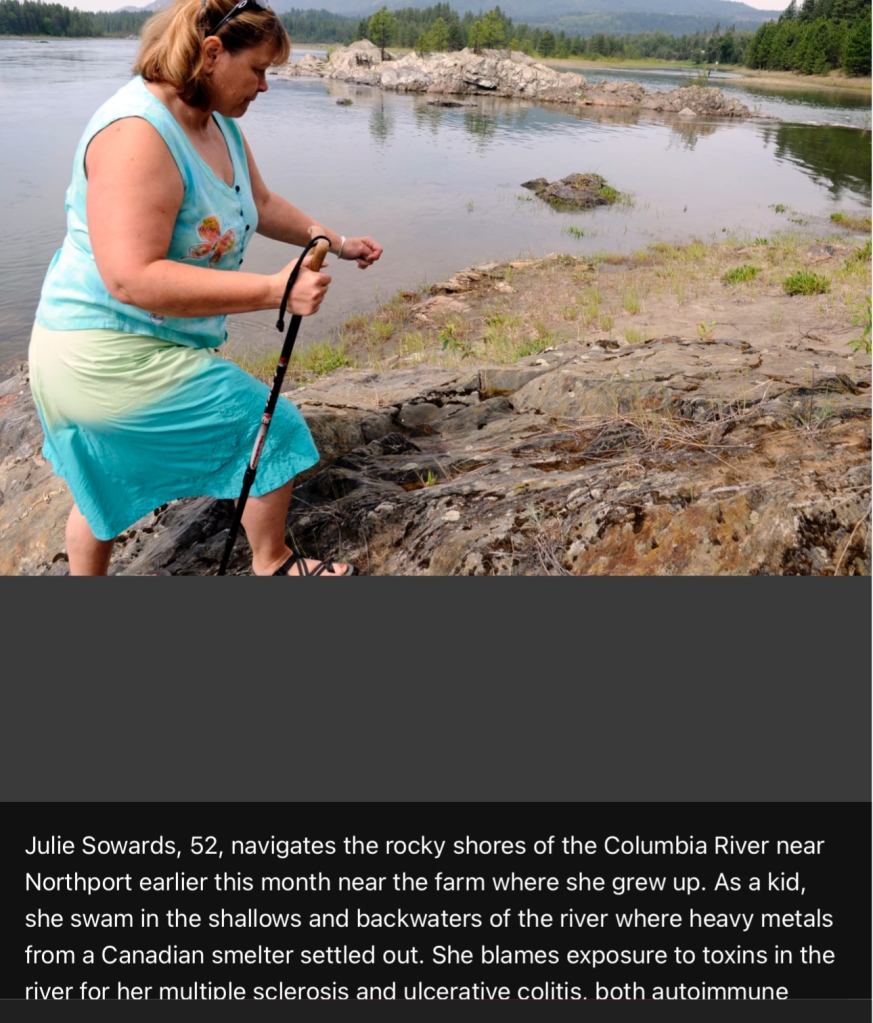Below is a summary from WA State Department of Ecology on the ongoing litigation between Teck Resources vs. the Colville Confederated Tribes, the State of Washington and the EPA.
In 1999, the Confederated Tribes of the Colville Reservation (CCT) petitioned the EPA to conduct an assessment of Upper Columbia River contamination. In 2003, the EPA issued Teck a Unilateral Administrative Order requiring Teck to investigate the site and produce a plan to identify ways to investigate the contamination caused by the Trail Smelter. Teck did not comply.
In 2004, the original Plaintiffs in this suit, Joseph Pakootas and Donald R. Michel (collectively Pakootas), filed a complaint in the U.S. District Court for the Eastern District of Washington under the citizens’ suit provision of the federal Comprehensive Response Compensation and Liability Act (CERCLA). CERCLA (often called Superfund) makes certain parties liable for costs and damages associated with releases of hazardous substances. The complaint asked the district court for declaratory and injunctive relief, including enforcing EPA’s Order against Teck. Washington State quickly filed a Complaint in Intervention, which was granted. The State and CCT complaints have been amended during the litigation to include NRDA, cost recovery, and air pathway liability.
The case continues to advance along under basically three phases:
- Liability
- Response costs
- NRDA
The plaintiff parties (Washington and CCT) moved forward on Teck’s CERCLA liability under the framework the Court defined in Pakootas I (that Teck could be held liable under CERCLA for releases of Teck contaminants in the upper Columbia River valley).
On the eve of trial, Teck conceded in a stipulation that both its slag and liquid effluent crossed into the United States and had come to be located in the upper Columbia River valley, had released, and continue to release hazardous substances into the sediments and waters of the Columbia River. The district court ultimately held that Teck was liable as a CERCLA “arranger” on December 14, 2012. Extraterritorial arguments, based on the fact that the Trail smelter is outside the U.S., have continued to be rejected by the courts.
Securing Teck’s U.S. legal liability for legacy pollution caused by air emissions pollution became procedurally stalled in 2016 due to a 9th Circuit decision. The decision was based on a highly nuanced legal interpretation (not a science-based determination) of the definition of “disposal” in CERCLA, which is also referenced in another federal waste environmental law (the Resource Conservation and Recovery Act).
State and CCT reimbursement of response costs have been awarded or conditionally settled, but are under appeal. The NRDA claim phase has yet to begin.
On Feb. 16th, 2018 Trail Times reported Teck Resources is appealing the 2016 $8.25 million U.S. court ruling by District Court Judge Lonny Suko. This ruling found in favor of The Confederated Tribes of the Colville Reservation (CCT). Of the $82.5 million awarded, $4.9 million is allocated to the CCT’s decades of litigation costs and $3.4 million is allocated for the expenses related to their investigative studies of the water.
For the better part of 20 years now, Teck has continued to fight liability and associated obligations at all levels for the century’s worth of industrial wastes Trail historically discharged directly to the Columbia River or from smoke stacks at the smelter complex. The litigation and multiple appeals continue in federal court.





Leave a Reply/Comment